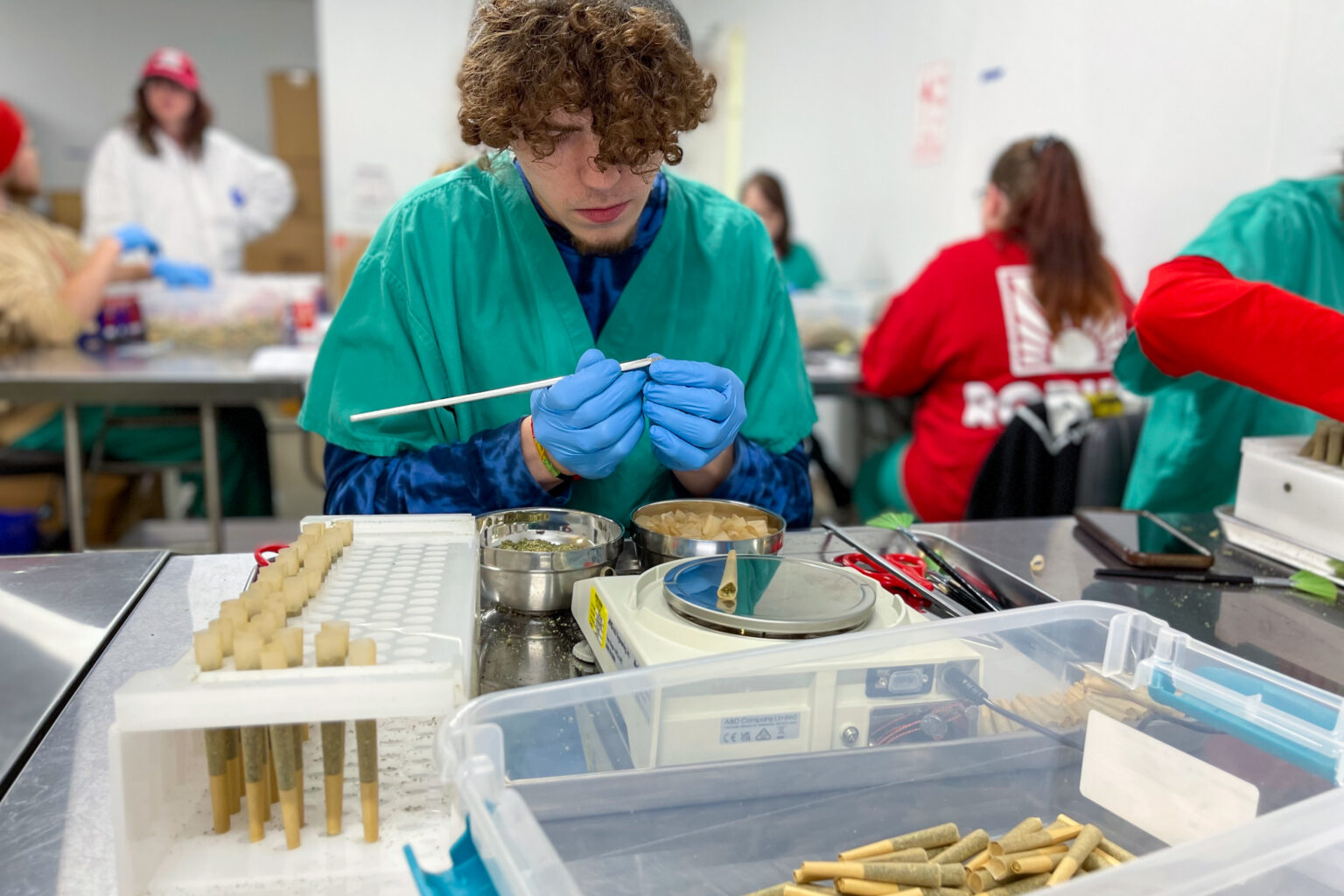Home » News » 2024 » November
News Brief
Nov. 12, 2024 |
By: Rebecca Rivas and Rudi Keller - Missouri Independent
Appeals court rules counties cannot stack Missouri marijuana taxes

By Rebecca Rivas and Rudi Keller - Missouri Independent
A panel of Missouri appellate judges ruled Tuesday that the constitution’s “plain, unambiguous” language means cities and counties cannot stack marijuana sales taxes.
The Missouri Court of Appeals Eastern District’s decision reversed a lower court’s ruling in May that allowed both Florissant and St. Louis County to impose a 3% sales tax on marijuana products.
That resulted in customers at the Florissant-based dispensary Robust Missouri 3 LLC paying a total sales tax of 20.988% — a 14.988% sales tax rate plus the statewide 6% adult-use marijuana tax.
“The plain language of [the Constitution] is unambiguous,” Judge John Torbitzky wrote in the unanimous opinion. “Only one local government is authorized to impose an additional three percent sales tax.”
The constitutional amendment voters approved in 2022 legalizing recreational marijuana allowed local governments to impose additional sales tax on the products.
The question before the three-judge panel was: what did voters intend by “local government?”
The Constitution states that “local government” means, “in the case of an incorporated area, a village, town, or city; and, in the case of an unincorporated area, a county.”
At a hearing in October, attorneys for St. Louis and St. Charles counties argued the word “and” is key in the definition.
However, Robust argued voters intended for a county to be able to impose a sales tax only in unincorporated areas. The appellate judges agreed, saying “an incorporated area like Florissant, the village, town, or city is the ‘local government,’ not the county.”
According to Missouri Department of Revenue’s October data, 90 of the state’s 114 counties have enacted a 3% marijuana sales tax. Of those, 74 also include a municipality that has imposed the tax, meaning both city and county governments have been imposing a 3% tax at dispensaries.
“Today’s ruling helps put $3 million back into the pockets of Missouri customers each month,” said Andrew Mullins, executive director for the Missouri Cannabis Trade Association, “and will allow the industry to continue to contribute hundreds of millions each year in sales tax revenue to the state and our local communities.”
The association’s estimate of $3 million in excess taxation is based on Missouri’s monthly average of $105 million in adult-use cannabis sales.
St. Louis and St. Charles counties have 30 days after the decision to request that the Missouri Supreme Court review the case.
“We are reviewing the ruling and determining next steps,” said Doug Moore, spokesman for St. Louis County. “It is unclear at this point what the financial impact would be.”
In the judges’ decision, they wrote that the counties’ argument that the word “and” allows them to impose an additional tax, “suffers from several serious defects.”
“First, it wholly discounts the phrase ‘in the case of an unincorporated area’ that appears immediately before the words ‘the county,’” the decision states. “Were this court to read [the constitution] as the counties urge, the phrase would be rendered superfluous.”
The judges also stated that the constitution lists the entities that can be a local government within an incorporated area.
“That list includes a ‘village, town, or city,’ which, not coincidentally, are the three types of incorporated municipal entities recognized by the Revised Statutes of Missouri,” the decision states. “That list does not include a county.”
The appellate judges also addressed the possibility of “absurd outcomes” that St. Louis County Circuit Judge Brian May wrote about in his ruling if the court accepted Robust’s definition of local government.
May wrote that if Robust’s interpretation of the amendment were accepted, “then a municipality or city would essentially be given carte blanche to ignore any county ordinance or regulation, including those related to public health and safety wholly unrelated to the taxing issue.”
May was largely talking about public health regulations — particularly those that apply to marijuana dispensaries — because public health in Florissant is regulated by St. Louis County.
The appellate judges stated that those issues “are not before this court.”
“Each such ordinance would need to be evaluated on its own merits,” they said.
A similar appeals case out of Buchanan County is also pending.
St. Joseph dispensary Vertical Enterprises sued Buchanan County Collector Peggy Campbell, arguing that it, too, would be “irreparably harmed” if both taxes were imposed.
Also in May, Circuit Judge Daniel Kellogg ruled that the marijuana law does not limit the taxing power of counties within corporate limits of towns and cities.
A date for oral arguments in the Buchanan County case has not yet been set.
![]()






